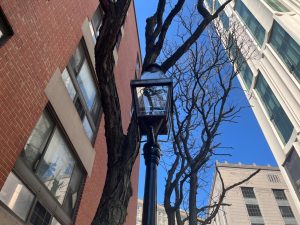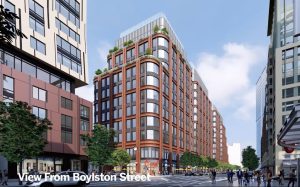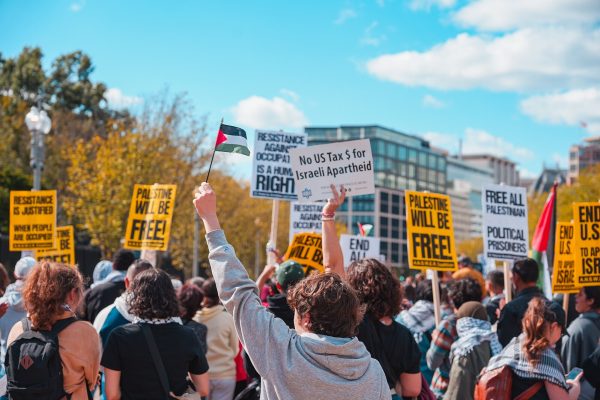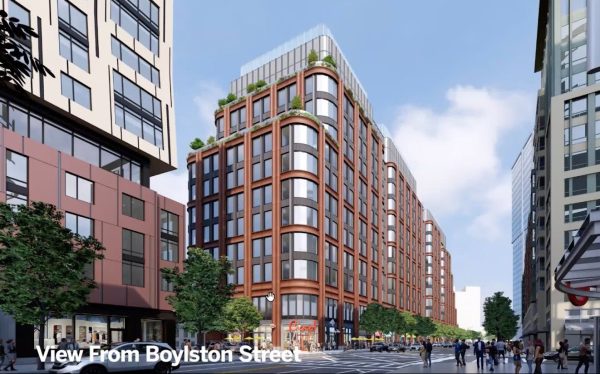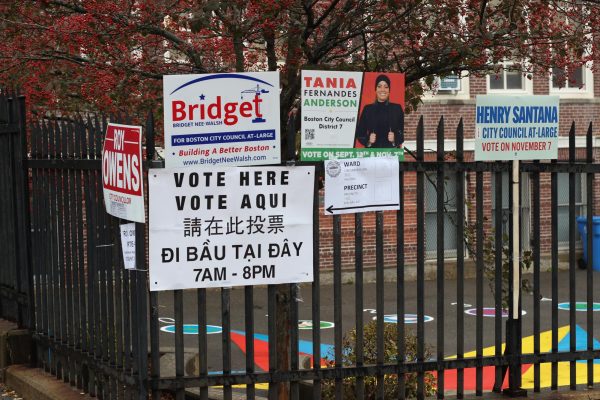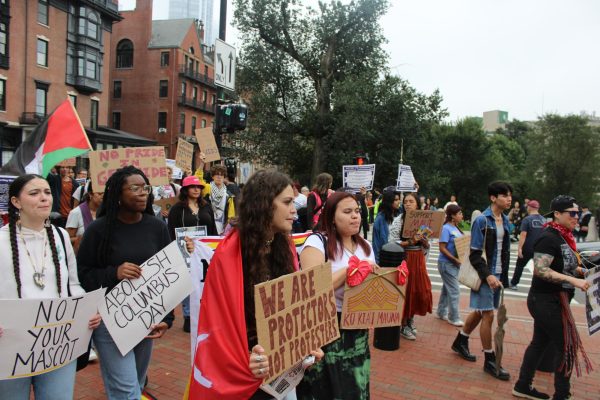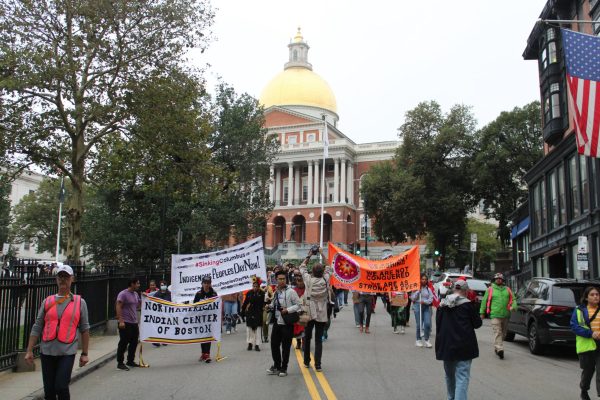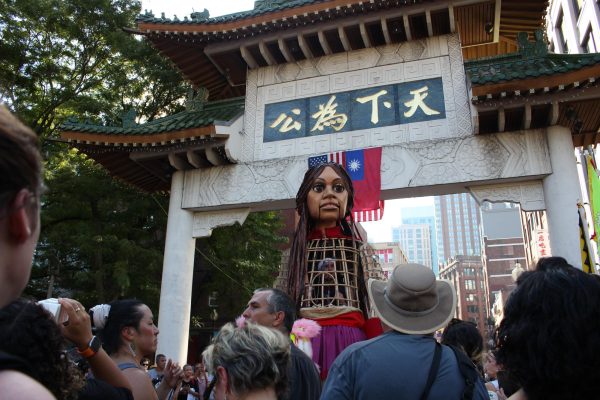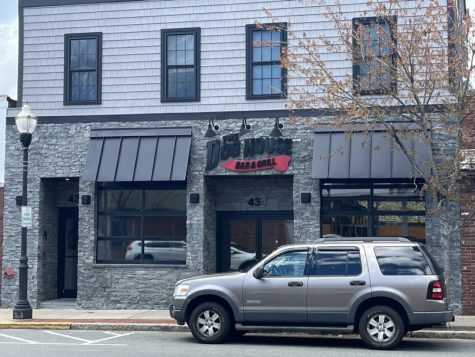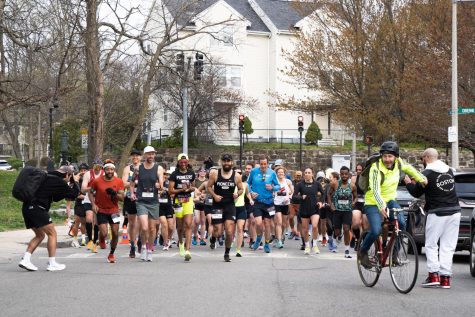City Council discusses safety conditions of Boston Public Schools in extreme temperatures
October 1, 2021
Boston City Council discussed plans to address the safety conditions of Boston Public Schools buildings and classrooms during extreme temperatures in a virtual meeting on Sept. 30.
Councilor at-large and Chair of Boston City Council’s Committee on Education Annissa Essaibi George led the discussion between representatives from Boston Public Schools (BPS), the Boston Education Justice Alliance, Massachusetts Coalition for Occupational Safety and Health (MassCOSH), and Councilors Ricardo Arroyo, Michael Flaherty, Julia Mejia and Michelle Wu.
Arroyo addressed the concerns of BPS students, teachers, and staff regarding the extreme temperatures in classrooms and school buildings and their effect on health and safety conditions in the schools. Essaibi George read a statement from Flynn, who was unable to attend the meeting.
“I believe that we must ensure that our students learn in an environment that shelters them from extreme heat and cold, mainly in buildings that are temperature-controlled with proper ventilation and insulation,” Flynn wrote in his statement. “I urge that BPS look into funding sources to retrofit our school buildings with HVAC systems so that our students, teachers and staff can learn and work in a healthy and safe environment.”
BPS Executive Director of Facilities Brian Forde presented BPS’ plans to provide air conditioning in every school. BPS secured a contract to purchase 6,4000 air conditioners from George Washington Toma TV and Appliance (GWTOMA) with support from the City of Boston Procurement Office. The BPS Facilities Department is finalizing the contract with Lynnwell Associates Electrical Contractors for air conditioner installation, addressing the electrical infrastructure of BPS buildings, and preparing windows to hold the air conditioners.
BPS anticipates the installation to begin in October and continue through spring. This plan may change due to changes in the supply chain, COVID-19, and labor issues.
Forde also presented BPS’ plans to assess the use of window shades in buildings and compare the costs of materials and labor to install and repair window shades to upgrading the heating, ventilation, and air conditioning (HVAC) systems in the buildings. According to Forde, BPS provides access to drinkable water at all schools, and outdoor water sources are not available at every school.
Many BPS buildings were built before World War II. BPS plans to equip new school buildings with “modern Comprehensive HVAC systems,” which will allow for heating and cooling to be “adjusted by the touch of a button” and will be operated and monitored both in-school and remotely. In summer 2021, the Extended School Year (ESY) operated at 13 BPS buildings. TechBoston Academy was the only school without air conditioning.
BPS Deputy Superintendent of Operations Samuel DePina addressed Flaherty and Mejia’s concerns about current classrooms and buildings that currently experience temperatures and the air quality. According to DePina, these schools are instructed to contact their custodians, who should contact their school principal, who should then contact the Energy Division of Building Services to adjust the temperature controls within school buildings.
In May 2021, BPS published the results from indoor air quality (IAQ) tests and air exchange testing (Air Changes Per Hour, ACH) and concluded that most schools “did not need additional repairs or updates” besides 13 schools that had necessary repairs:
- Boston Arts Academy
- Charlestown High School
- Community Academy of Science and Health
- Dearborn STEM 6-12 Academy
- Ellison, Dr. Catherine/Parks, Rosa Early Education School
- Haley, Dennis C. Pilot School
- Haynes, Rev. Dr. Michael E. Early Education Center
- Lee, Joseph K-8 School
- Mission Hill K-8 School
- Muniz, Margarita Academy
- Murphy, Richard J. K-8 School
- O’Bryant, John D. School of Math & Science
- Ohrenberger, William H. School
Arroyo, Mejia and BPS Chief Operations Officer Indira Alvarez acknowledged that BPS classrooms could reach extreme temperatures before COVID-19 affected schools. Alvarez emphasized that the main differences between combating the issue in the past and present are the available funds to upgrade or repair the infrastructure in BPS buildings.
The Executive Director of the Boston Education Justice Alliance, Ruby Reyes, addressed the inequities for facilities repairs and resources in BPS buildings. Reyes also stated that “no equity analysis has been completed” to assess the decisions of which schools ESY takes place and which schools get new HVAC systems.
“These inequitable decisions end up hurting our highest need learners the most, including Black, Latino, English learners, and students with disabilities,” Reyes said. “Summer programming in BPS buildings is often used by students attending summer school or students with disabilities in ESY, or the Extended School Year, and various summer programs.”
The youth organizers of MassCOSH have also “been working on this issue for many years around a heat campaign…long before the summer’s series of 90 degree days,” according to Reyes.
Maddie Taylor, an 11th-grader at Boston Latin School who also worked with MassCOSH in the Teens Lead at Work program, described her experience taking the MCAS in June 2021 in a hot and humid dining hall and that she felt the need to rush through the test to get out of the dining hall faster. Taylor also recalled that she experienced uncomfortably hot and cold temperatures before COVID-19, and she wore winter coats in class because the building did not have heat.
MassCOSH Youth Programs Director Joe Tache pointed to Taylor’s story as an example of why BPS buildings need more than just air conditioners in classrooms.
“There are other spaces in schools that students and teachers are in on a daily basis and sometimes have to take these high stakes tests in,” Tache said. “I think really updating the HVAC systems in every building to make sure that there’s high-quality ventilation and temperature regulation everywhere in the school is really important.”
MassCOSH Executive Director Jodi Sugerman-Brozan testified to encourage the attendees to consider OSHA’s “new special enforcement initiatives around heat-related hazards” for both indoor and outdoor workers. Sugerman-Brozan also encouraged them to take initiative with laws to protect faculty and staff who work in school buildings from heat-related hazards.

